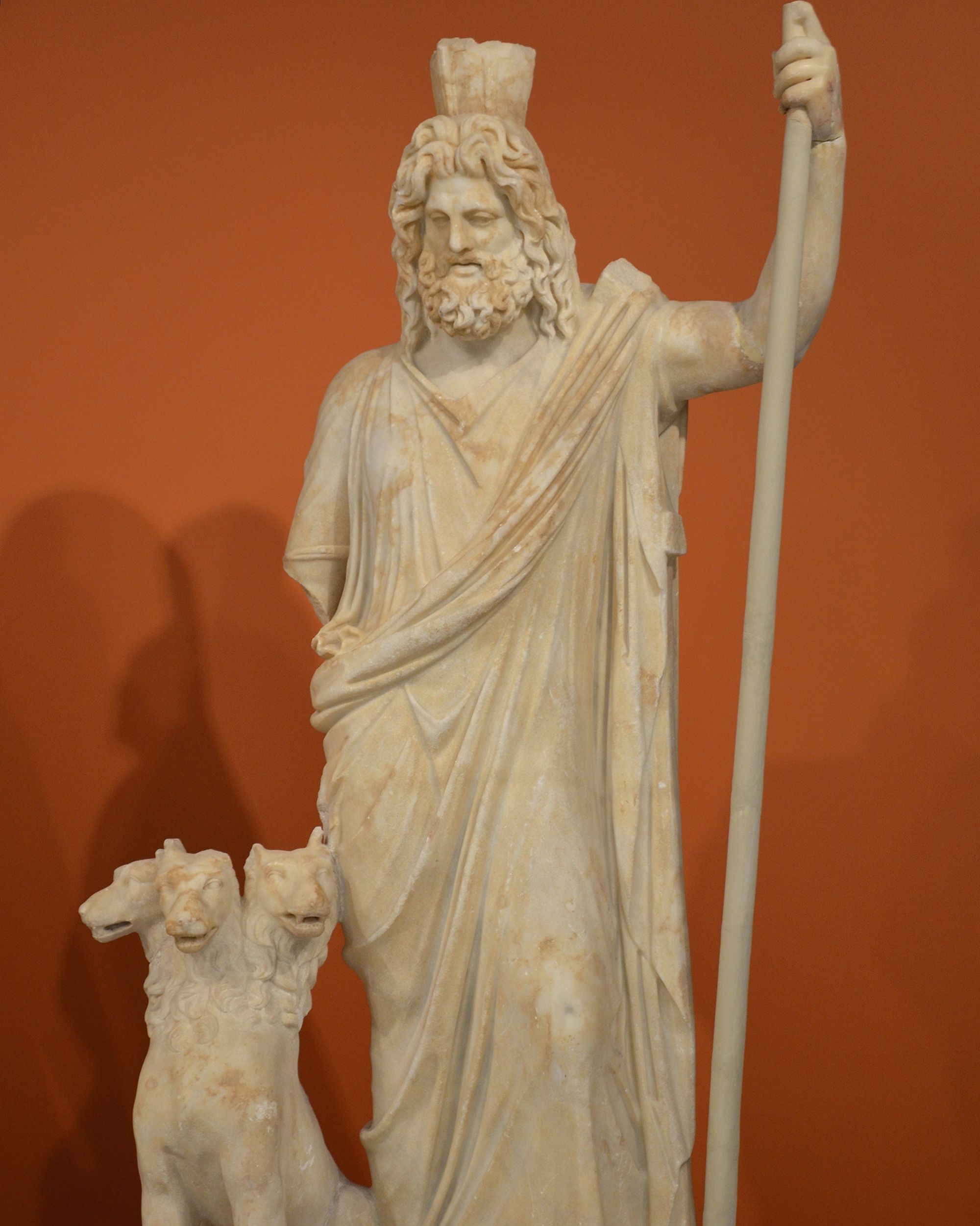The Silent Guardian: Hades' Tale of Justice and Love

When people think of Hades, the Greek god of the Underworld, they often imagine someone scary and cruel. After all, he rules over the land of the dead! But did you know that Hades wasn’t actually evil? In fact, he was one of the fairest and most responsible gods in Greek mythology.
While other gods were known for fighting, tricking, and being selfish, Hades was often calm, just, and even gentle. He had a tough job—taking care of souls in the Underworld—but he did it fairly and made sure everything ran smoothly.
Today, let’s explore the gentle and kind side of Hades, the god who was much more than just the ruler of the dead.
Who Was Hades?
Hades was the oldest son of Cronus and Rhea, making him the brother of Zeus and Poseidon. After defeating their father, the three brothers divided the world among themselves:
- Zeus ruled the sky, becoming the king of the gods.
- Poseidon ruled the sea, controlling the oceans and storms.
- Hades ruled the Underworld, where souls went after they died.
Unlike Zeus, who loved adventure, or Poseidon, who could be moody, Hades was calm and serious. He didn’t visit Mount Olympus often and preferred to stay in his dark but peaceful kingdom.
Although Hades ruled the world of the dead, he wasn’t a monster or a villain. He didn’t cause people to die—he just made sure their souls found their place in the afterlife.
Hades Was Fair and Just
One of the biggest misconceptions about Hades is that he was cruel or unfair. But in reality, he was one of the most fair and just gods in Greek mythology.
When souls arrived in the Underworld, Hades didn’t decide where they went. Instead, three judges—Minos, Rhadamanthus, and Aeacus—examined their lives and sent them to:
- Elysium (a paradise for heroes and good souls)
- The Asphodel Fields (for ordinary souls who lived neither good nor bad lives)
- Tartarus (a dark prison for the worst people, like traitors and criminals)
Hades never changed these decisions or treated anyone unfairly. He made sure the Underworld was a place of order, not chaos.
Unlike Zeus and Poseidon, who were often selfish or unpredictable, Hades was calm, logical, and respected the rules.
Hades Loved Persephone and Treated Her Kindly
One of the most famous myths about Hades is the story of Persephone, the goddess of spring. Many people believe that Hades forced Persephone to stay with him, but the story is more complex than that.
Hades fell in love with Persephone and took her to the Underworld. At first, she was unhappy, but over time, she grew to love him too. Unlike other gods, who often disrespected women, Hades was gentle and kind to Persephone. He made her his queen, treated her as an equal, and gave her power over the Underworld.
When Persephone’s mother, Demeter, demanded her return, Hades didn’t try to stop her. Instead, he made a deal: Persephone could spend half the year with her mother and the other half with him.
This myth explains the seasons—when Persephone is with Hades, it is winter (because Demeter is sad), and when she returns, it is spring and summer.
Unlike Zeus, who had many love affairs and often betrayed his wife, Hades was faithful and devoted to Persephone.
Hades Protected the Dead and Respected Souls
In Greek myths, the gods often treated humans harshly, but Hades respected the souls of the dead. He made sure that:
- No soul escaped unfairly
- No god or human could take souls from the Underworld without permission
- The spirits of the dead were treated properly
When Orpheus, a famous musician, came to the Underworld to bring back his wife, Eurydice, Hades did something unexpected—he gave him a chance! He allowed Orpheus to take Eurydice back under one condition: he couldn’t look back at her until they reached the surface.
Unfortunately, Orpheus broke the rule, and Eurydice was lost forever. But the fact that Hades even gave him a chance showed his fair and merciful side.
Hades Was Not the God of Evil
Many people wrongly think of Hades as the Greek version of the devil, but that’s not true at all! In fact:
- Hades didn’t enjoy punishing people—he just made sure justice was served.
- He never tricked or betrayed anyone, unlike Zeus or other gods.
- He protected the dead, rather than harming them.
Even his name, Hades, means “The Unseen One,” which shows how he preferred to stay away from trouble rather than cause it.
The Truth About Hades
Hades may have ruled the Underworld, but he was one of the most responsible and loyal gods in Greek mythology. He was fair, calm, and much kinder than many of the other gods.
Unlike Zeus, who was often reckless, or Poseidon, who was quick to anger, Hades:
- Followed the rules
- Respected others
- Loved his wife and remained faithful to her
- Made sure justice was served fairly
Even though he ruled the land of the dead, Hades wasn’t a villain—he was a wise and just ruler who took care of the souls of the afterlife.
So, the next time you hear about Hades, remember—he wasn’t just the god of the dead. He was also a god of fairness, loyalty, and order.